Mairéad McClean
Mairéad McClean’s work disrupts and restructures events from the past highlighting the unreliability of history. By examining the sound and image connect, material evidence is opened, re-evaluated and re-interpreted to create a new vantage point. Using archive footage, sound recordings and self-filmed sequences, she produces work that touches on the themes of memory, identity and migration.
Her video No More, used the introduction of Internment without trial in Northern Ireland in the early 1970’s as its starting point. The piece won the inaugural MAC International Ulster Bank Art Prize in Oct 2014. In 2015 she was commissioned by The National Museums of Ireland, to work with a group of Migrant Women to produce a film for an exhibition entitled Migrant Women: Shared Experience. In 2016 she had a dedicated screening programme of her film work from produced between 1991-2016 at The Belfast Film Festival with other film work shown in the USA and across the UK.
McClean, was born and grew up in Beragh, Co Tyrone, Northern Ireland and has lived and worked for the past 25 years in London. She completed a Postgraduate in Fine Art at the Slade School of Art between 89/91 and held the position of Reader in Film and Video Arts at the University of Greenwich, until October 2011. She is a sessional senior film tutor teaching Experimental film at The MET Film School, Ealing London.
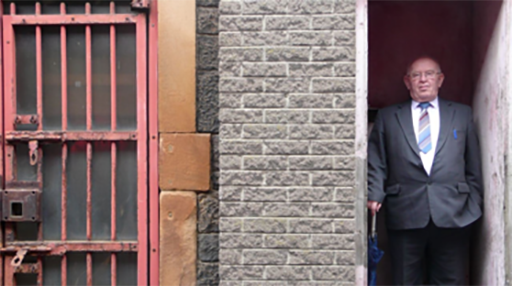
For the Record | UK 2008 | SD | 54 min
Northern Ireland, December 1956: The IRA launch a border campaign (Operation Harvest) from the South of Ireland with the aim of overthrowing the Northern State and creating a United Ireland. PJ McClean, the artist’s father, is one of the first 32 men arrested in an attempt to curtail insurgent activity. He is not a member of the IRA nor is he accused of being one. However, the Northern Irish Government holds him for almost 4 years in Crumlin Road Prison, Belfast. For The Record tells his story some 50 years later.
Featured in:
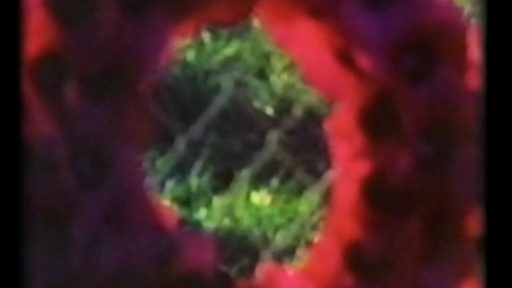
Blue is the Colour of Distance | UK 1991 | 16mm | 3 min
The majority of footage was filmed in and around the grounds of the Slade School of Art in London. The moving image sequences in Northern Ireland where filmed near a green, moss covered bridge that ran above Altamuskin Alter Glen where the artist’s father grew up and the red wreathed fence where eight British Soldiers were killed by an IRA bomb in 1988, close to the village where the McCleans lived. Both places were and continue to be sites of mourning. The title of the film is taken from a line in a Tennesse Williams play and refers to nostalgia, the home sickness associated with looking back. Nostalgia was for centuries considered a potentially debilitating and sometimes fatal medical condition.
Featured in:
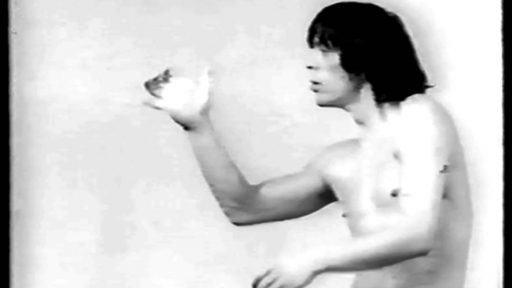
No More | UK 2014 | HD | 16 min
Two events, taking place in two different parts of Europe in the early 1970s, are the starting point for No More. The footage used is from a BBC broadcast of the Prime Minister of Northern Ireland, Brian Faulkner, introducing Internment, and from a demonstration of body exercises designed to allow the practitioner to go beyond ‘their own personal limitations’, by Ryszard Cieślak, of Grotowski’s Polish Laboratory Theater Company. Mairéad McClean was 5 years old when her father was taken from the family home and interned in Long Kesh prison. No More combines the footage of Faulkner and Cieślak with personal artefacts to create a landscape of haunting.
Featured in:
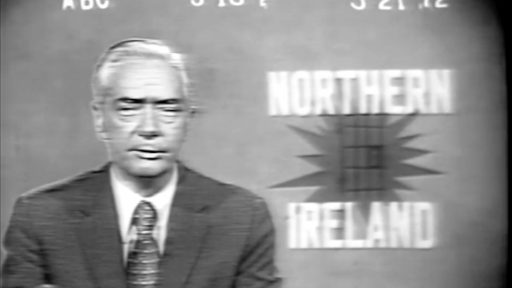
Let it Speak: Being with the Archive | Panel presentation and discussion
Featured in:
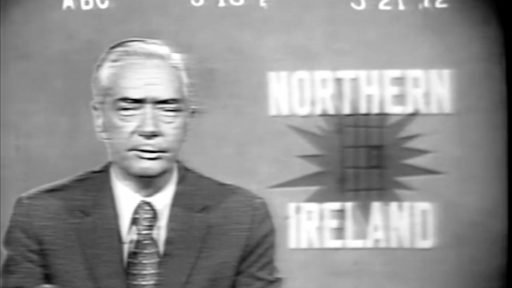
Broadcast 32172 | UK 2017 | Archival footage/iPhone | 4 min
Broadcast 32172 repurposes an ABC news broadcast of the artists’ mother being interviewed in 1972 by an American journalist when her husband was interned without trial in Long Kesh Prison, Northern Ireland. The film pulls the archival material apart to examine history from a different perspective in an attempt to interpret the past and define protocols for that process. The personal and the private collide with this news ‘story’ bringing into question the wider framework of newsworthy stories and how one of America’s premier news stations portrayed the situation in Northern Ireland at the time.